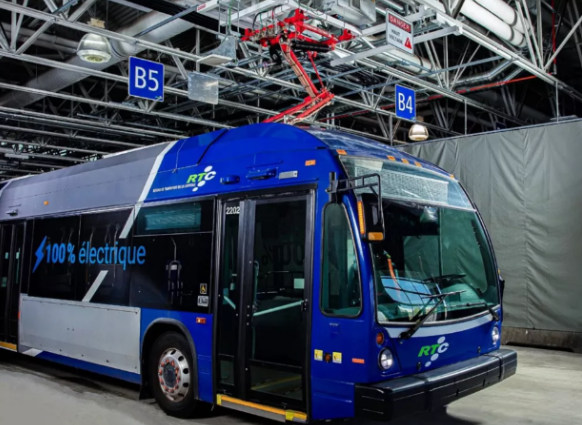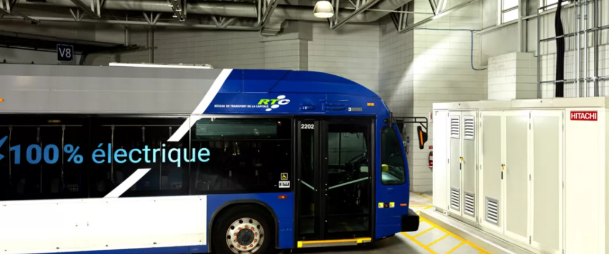
Hitachi Energy Successfully Deploys First Centralized Electric Bus Charging System in Canada

A few days ago Latam Mobility reviewed the launch of the Grid-eMotion® solution by Hitachi Energy. It is a centralized multi-vehicle electric bus charging solution for RTC, the Quebec metropolitan area’s public transit agency.
The technology was selected for testing as part of a pilot project in 2022 following a tender won by Hitachi Energy.
The three-year project represents an important step toward the ultimate electrification of the RTC’s entire fleet and bus infrastructure.
According to Hitachi Energy, the pilot is providing valuable data on the best strategies for charging a large number of vehicles.

High-end
The technology selected for the pilot is Hitachi Energy’s Grid-eMotion® Fleet Solution, an integrated charging system that can deliver tailored multi-megawatt capacities for the demanding requirements of urban bus fleets.
The system requires 60% less space than conventional charging systems and 40% less tank wiring.
The industry-leading grid-connected solution has been used in sustainable transport projects in some of the world’s largest city bus systems, including London, UK, Västerås, Sweden and Brisbane, Australia.
The project supports the Quebec provincial government’s plan to electrify 55% of its city buses and 65% of its school buses by 2030, a critical goal in Canada.
Motivation within the company
Alireza Aram, General Manager, Grid Integration North America, Hitachi Energy, noted that the project allows them to explore different approaches to charging electric vehicle fleets in a real-world environment, collecting data that can be applied with public transportation agencies around the world.”
“Hitachi Energy is proud to support the RTC energy transition through our Grid-eMotion Fleet pilot project. This project offers a great opportunity to demonstrate how charging systems designed specifically for fleets can play a key role in transitioning our urban transportation systems to all-electric operations,” he said.
One of the main objectives of the project is to explore different fleet charging strategies in an active bus terminal, including traditional plug-in and overhead pantograph systems.





